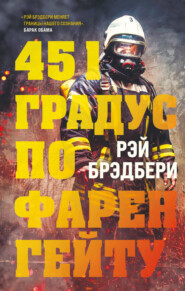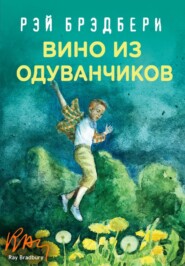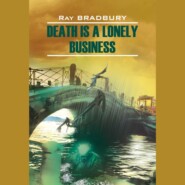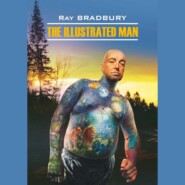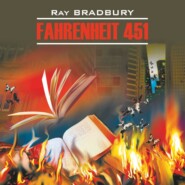По всем вопросам обращайтесь на: info@litportal.ru
(©) 2003-2024.
✖
I Sing the Body Electric
Автор
Год написания книги
2018
Настройки чтения
Размер шрифта
Высота строк
Поля
“Accepted,” said the Lord with gratitude.
Along the hall they came to another, vaster landscape with all sorts of monster beast-men cavorting about treading fruit and squeezing summer-melon women. Everyone craned forward to read the brass plate under it: Twilight of the Gods.
“Twilight, hell,” said Rooney, “it looks more like the start of a great afternoon!”
“I believe,” said the gentle old man, “there is irony intended both in title and subject. Note the glowering sky, the hideous figures hidden in the clouds. The gods are unaware, in the midst of their bacchanal, that Doom is about to descend.”
“I do not see,” said Blinky Watts, “the Church or any of her girly priests up in them clouds.”
“It was a different kind of Doom in them days,” said Nolan. “Everyone knows that.”
“Me and Tuohy,” said Flannery, “will carry the demon gods to my place. Right, Tuohy?”
“Right!”
And so it went now, along the hall, the squad pausing here or there as on a grand tour of a museum, and each in turn volunteering to scurry home through the snowfall night with a Degas or a Rembrandt sketch or a large oil by one of the Dutch masters, until they came to a rather grisly oil of a man, hung in a dim alcove.
“Portrait of myself,” muttered the old man, “done by her Ladyship. Leave it there, please.”
“You mean,” gasped Nolan, “you want it to go up in the Conflagration?”
“Now, this next picture—” said the old man, moving on.
And finally the tour was at an end.
“Of course,” said his Lordship, “if you really want to be saving, there are a dozen exquisite Ming vases in the house—”
“As good as collected,” said Nolan.
“A Persian carpet on the landing—”
“We will roll it and deliver it to the Dublin Museum.”
“And that exquisite chandelier in the main dining room.”
“It shall be hidden away until the Troubles are over,” sighed Casey, tired already.
“Well, then,” said the old man, shaking each hand as he passed. “Perhaps you might start now, don’t you imagine? I mean, you do indeed have a largish job preserving the National Treasures. Think I shall nap five minutes now before dressing.”
And the old man wandered off upstairs.
Leaving the men stunned and isolated in a mob in the hall below, watching him go away out of sight.
“Casey,” said Blinky Watts, “has it crossed your small mind, if you’d remembered to bring the matches there would be no such long night of work as this ahead?”
“Jesus, where’s your taste for the ass-thetics?” cried Riordan.
“Shut up!” said Casey. “Okay, Flannery, you on one end of the Twilight of the Gods, you, Tuohy, on the far end where the maid is being given what’s good for her. Ha! Lift!”
And the gods, soaring crazily, took to the air.
By seven o’clock most of the paintings were out of the house and racked against each other in the snow, waiting to be taken off in various directions toward various huts. At seven fifteen, Lord and Lady Kilgotten came out and drove away, and Casey quickly formed the mob in front of the stacked paintings so the nice old lady wouldn’t see what they were up to. The boys cheered as the car went down the drive. Lady Kilgotten waved frailly back.
From seven thirty until ten the rest of the paintings walked out in one’s and two’s.
When all the pictures were gone save one, Kelly stood in the dim alcove worrying over Lady Kilgotten’s Sunday painting of the old Lord. He shuddered, decided on a supreme humanitarianism, and carried the portrait safely out into the night.
At midnight, Lord and Lady Kilgotten, returning with guests, found only great shuffling tracks in the snow where Flannery and Tuohy had set off one way with the dear bacchanal; where Casey, grumbling, had led a parade of Van Dycks, Rembrandts, Bouchers, and Piranesis another; and, where last of all, Blinky Watts, kicking his heels, had trotted happily into the woods with his nude Renoirs.
The dinner party was over by two. Lady Kilgotten went to bed satisfied that all the paintings had been sent out, en masse, to be cleaned.
At three in the morning, Lord Kilgotten still sat sleepless in his library, alone among empty walls, before a fireless hearth, a muffler about his thin neck, a glass of brandy in his faintly trembling hand.
About three fifteen there was a stealthy creaking of parquetry, a shift of shadows, and, after a time, cap in hand, there stood Casey at the library door.
“Hist!” he called softly.
The Lord, who had dozed somewhat, blinked his eyes wide. “Oh dear me,” he said, “is it time for us to go?”
“That’s tomorrow night,” said Casey. “And anyways, it’s not you that’s going, it’s Them is coming back.”
“Them? Your friends?”
“No, yours.” And Casey beckoned.
The old man let himself be led through the hall to look out the front door into a deep well of night.
There, like Napoleon’s numbed dog-army of foot-weary, undecided, and demoralized men, stood the shadowy but familiar mob, their hands full of pictures—pictures leaned against their legs, pictures on their backs, pictures stood upright and held by trembling, panic-whitened hands in the drifted snow. A terrible silence lay over and among the men. They seemed stranded, as if one enemy had gone off to fight far better wars while yet another enemy, as yet unnamed, nipped silent and trackless at their behinds. They kept glancing over their shoulders at the hills and the town as if at any moment Chaos herself might unleash her dogs from there. They alone, in the infiltering night, heard the far-off baying of dismays and despairs that cast a spell.
“Is that you, Riordan?” called Casey, nervously.
“Ah, who the hell would it be!” cried a voice out beyond.
“What do they want?” asked the old party.
“It’s not so much what we want as what you might now want from us,” called a voice.
“You see,” said another, advancing until all could see it was Hannahan in the light, “considered in all its aspects, your Honor, we’ve decided, you’re such a fine gent, we—”
“We will not burn your house!” cried Blinky Watts.
“Shut up and let the man talk!” said several voices.
Hannahan nodded. “That’s it. We will not burn your house.”
“But see here,” said the Lord, “I’m quite prepared. Everything can easily be moved out.”
“You’re taking the whole thing too lightly, begging your pardon, your Honor,” said Kelly. “Easy for you is not easy for us.”






